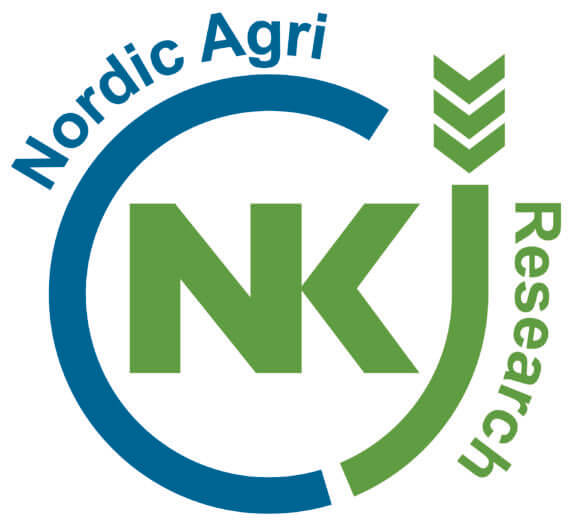

Bridge builders
Building sustainable nutritional bridges between research and health and wellbeing services for elderly
Connecting challenges of aging and the need for sustainable solutions with research and use of alternative proteins in elderly peoples diet.
The project has been completed.
Alternative proteins important for the elderly
The Nordic region shares same megatrends and challenges of aging and the need for sustainable solutions, where food and nutrition play a crucial role. Since aging increases substantially the need of protein and sufficient energy- and nutrient dense food, the focus is in the research and use of alternative proteins, various sources of protein in elderly peoples diet.
With increasing age both internal and external difficulties and restrictions rise. These factors can influence food consumption and furthermore older peoples health and functional capacities diminishing the quality of their every-day life. So emphasis in research is also put on creating caring mealtimes for elderly people (according to FAMM; Five Aspects Meal Model and the Hospitable Meal Model).
Research into practice
In order to get new findings and understanding of food and its effectiveness into operation, they need to be implemented in social and health care services for elderly people. This requires that also education of professionals involved is reformed and research findings are intertwined with and integrated in educational curriculums.
As a result, wellbeing and functional capacities of the elderly can be improved and societal burden of increasing care and costs diminished or at least kept the same.
Variety of expertise
Bridge Builders consists of a wide and diverse range of expertise in food and nutrition research (healthy food, alternative proteins, mealtime interventions, aging) as well as in service applications and good practices (dietary habits and environments, training of social and health professionals).
Participants represent Denmark (University College Copenhagen), Finland (South-Eastern University of Applied Sciences), Norway (University of Stavanger) and Sweden (Linnaeus University).
By sharing and working together we build bridges between research and practice.

Workshops
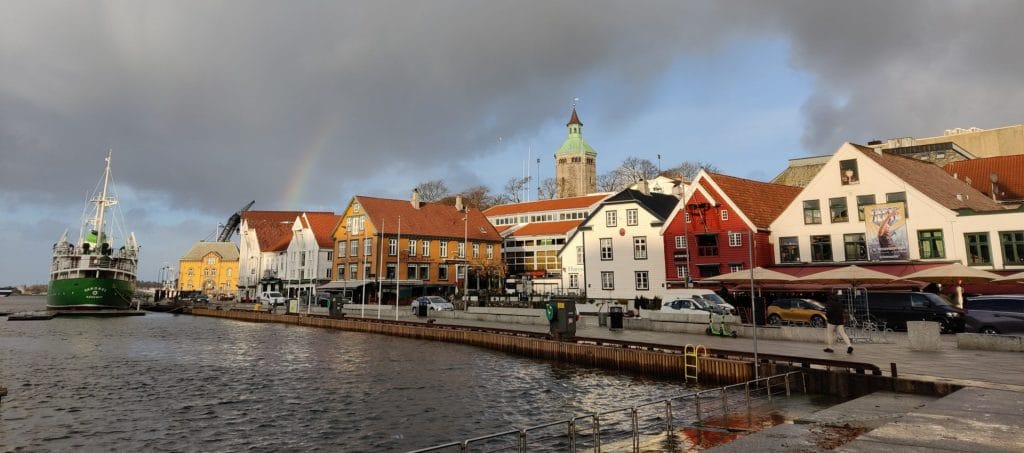
25.02.2022 08:50
The second workshop of the Bridge builders -project was held in November at Stavanger. Its´ program dealt mainly with planning and co-writing an abstract/presentation proposal, that was accepted in December, for ICCAS 2022, (International Conference on Culinary Arts and Sciences 2022; Sustainable meal systems worldwide: Challenges for Culinary Arts and Sciences). At the coming conference, our network’s aim is to present the activities of the Bridge Builders network in order to discuss how a multidisciplinary approach can contribute with new knowledge to promote sustainable healthy aging in relation to food, nutrition, health and well-being services. We would furthermore like to invite researchers and practitioners who participate in the congress to join the network.
During our work shop we had also a chance to meet University of Stavanger´s PhD candidates, one of whom gave us an inspiring presentation of her research among the elderly. Discussions about future actions within education development were vivid as well as discussions about joint research and funding possibilities for continuing the network activities. Collaboration procedures, network theories and various approaches deserve further attention as well as strengthening the ways of sharing currently available materials.
The workshop offered us a stage to meet each other in person, an opportunity to get to know each other and our different ways of working and writing together. The workshop was described being mind opening, it strengthened the network, helped clarify our purpose and revealed a need of future discussions and preparations. Our meeting and days at Stavanger were filled with warm Norwegian spirit and overflowing hospitality.
This spring we will continue our monthly online meetings and presentations of ongoing and future research areas related to healthy eating and aging from a holistic perspective. Also Erasmus+ exchange between several partners will go on as well as the preparation of articles and conference contributions.
Bridge Builders consists of expertise in food and nutrition research (healthy food, alternative proteins, mealtime interventions, aging) as well as in service applications and good practices (dietary habits and environments, training of social and health professionals). Participants represent Denmark (University College Copenhagen), Finland (South-Eastern University of Applied Sciences), Norway (University of Stavanger) and Sweden (Linnaeus University).
The project is funded by Nordic Joint Committee for Agricultural and Food Research.
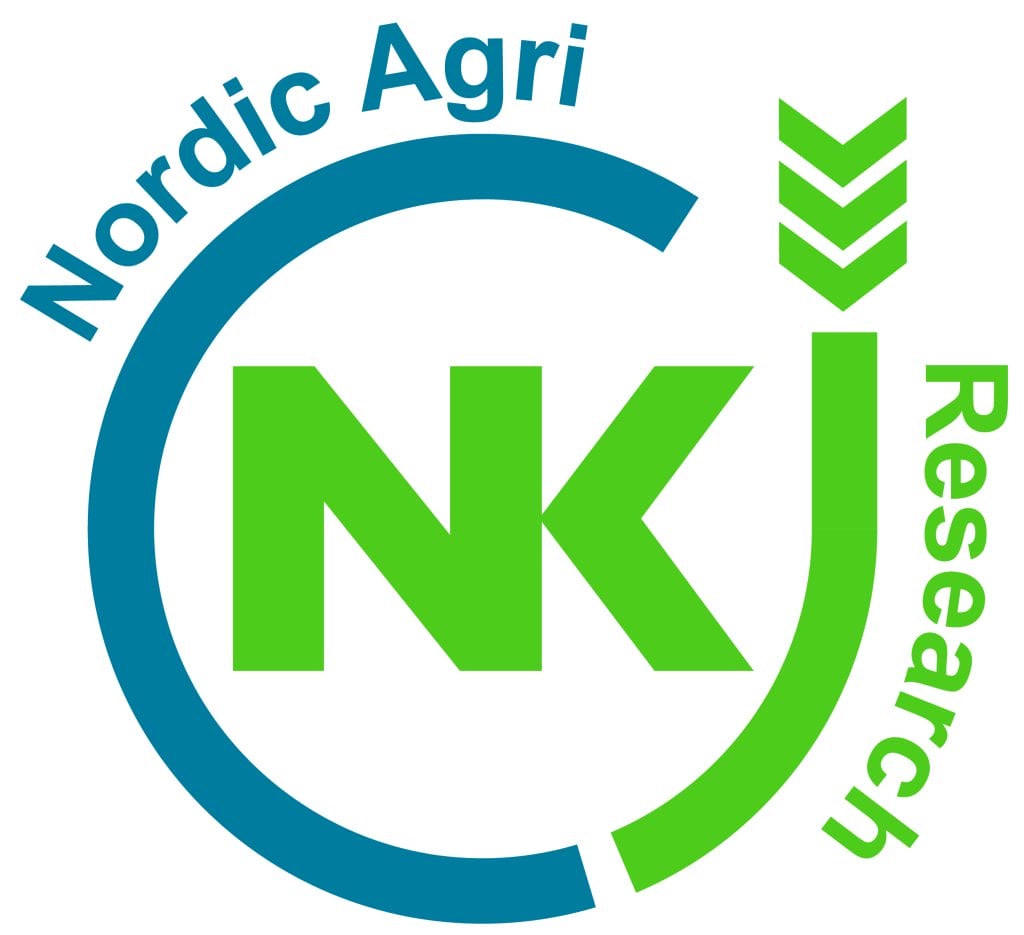
Text: Sari Ranta, Xamk
Picture: Teija Rautiainen, Xamk

05.05.2021 14:15
Bridge builders – Building sustainable nutritional bridges between research and health and wellbeing services for elderly -project organized a workshop to gain common understanding of RDI activities among partners.
Bridge Builders consists of expertise in food and nutrition research (healthy food, alternative proteins, mealtime interventions, aging) as well as in service applications and good practices (dietary habits and environments, training of social and health professionals). Participants represent Denmark (University College Copenhagen), Finland (South-Eastern University of Applied Sciences), Norway (University of Stavanger) and Sweden (Linnaeus University).
The first workshop of the project was held in March. Its theme was “let´s learn from each other”. The workshop revealed a wide range of research and topics that have a lot of impact.
The studies presented dealt with a targeted innovative rehabilitating meals-on-wheels service for old people, findings of the Breakfast Club study, that involves residents in nursing homes in food related activities and Creating caring spaces , a study that has focus on mealtime interventions in nursing homes. Also results of the Meal Aspects 2.0 study – 20 years later, and Agefood 2.0 study (elderly persons ́ food services in changing environments) were covered. In addition food and nutrition science at LNU and Stavanger´s Cognitive Lab at UiS and also Finnish Food recommendations for older adults were presented.
Presentations rise vivid conversations and produced ideas on which put the accent in future. Understanding Nordic perspective acquires attention; remote areas, best practices supporting healthy eating, participation and socializing are of primary concern. Supporting joint curriculum development and sharing already available materials were also emphasized. Based on what was learned it is interesting to head towards project´s second work shop in the Fall.
Text: Sari Ranta, Xamk
Events

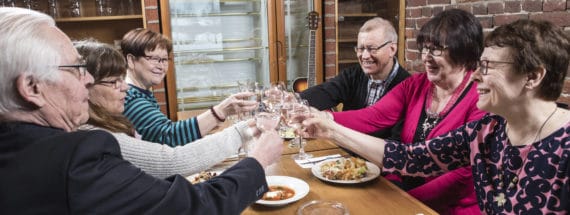
Aim of the webinar is to inform about activities of the network, to engage new partners (academy and practitioners)to join the network, and to engage with collaborators for joint application(s), e.g. the future Erasmus+ call in 2023.
Webinar program
- 13.00 Welcome & opening
- 13.20 – 14.10 Two presentations and discussion
- Meals in Nursing homes: The Breakfast Clubs Involvement in food related activities. Lise Justesen, Copenhagen College University, Denmark
- Mealtime situation in nursing homes: Creating caring spaces – development of mealtime interventions in nursing homes. Anna Sandgren, Linnaeus University, Sweden.
- 14.10 – 14.20 Short sum up
- 14.20 – 14. 30 Erasmus+ program – what it offers, Teija Rautiainen, Xamk, Finland
- 14.30-15.20 Two presentations and discussion
- Development of healthy food: Healthy and sustainable plant-based foods for elderly. Mohammed Hefni, Cornelia Witthöft, Linnaeus University, Sweden.
- Elderly and meal knowledge: Meal knowledge among elderly. ai Victor Myrnes-Hansen, UIS, Norway
- 15. 20 Short sum up
- 15.30 Discussion & next steps
If you have not registered to webinar contact teija.rautiainen@xamk.fi
The webinar link will be added here on Tuesday.
Webinar is organized by Bridge builders – Building sustainable nutritional bridges between research and health and wellbeing services for elderly -project.
****************************
The webinar program consist four topics voted most interesting.
Below are all topics,.
- Meals in Nursing homes: The Breakfast Clubs Involvement in food related activities. A study on involvement in food related activity as rehabilitative strategy to contribute to resident’s food-related functionality and quality of life. And as basis for new educational activities targeting Health Care Professional. Lise Justesen, University College Copenhagen, Denmark.
- Educational needs: Need of education in the field of elderly, nutrition and meals. There seems to be a lack of education in the theme of elderly, nutrition, and meals. What we could we do together? Sari Ranta, South Eastern Finland UAS, Finland.
- Educational needs: Education – are there topics missing? What topics do you see as deficient today when it comes to food and meals? Kai Victor Myrnes-Hansen, UIS, Norway.
- Local food environment: Multiform food related services to promote older people’s sense of community and functional capacity. Understanding of the local food environment helps to develop better regional services for older adults. Understanding of the local food environment helps to develop better regional services for older adults. Multisectoral groups are an efficient development tool. Teija Rautiainen, South-Eastern Finland UAS, Finland.
- Development of healthy food: Healthy and sustainable plant-based foods for elderly. There is a lack of attractive, healthy and sustainable snacks and foods for elderly. By incorporation of novel plant ingredients during food processing, will have a positive effect on both, nutrient profile and environment. Mohammed Hefni, Cornelia Witthöft, Linnaeus University, Sweden.
- Mealtime situation in nursing homes: Creating caring spaces – development of mealtime interventions in nursing homes. The mealtime is a key social focal point and occupies a large proportion of activity during a day. The environment is an actor for health, quality of life and wellbeing. To meet the complex needs, it is recommended that mealtime interventions address the entirety of the mealtime environment. Anna Sandgren, Linnaeus University, Sweden.
- Elderly and meal knowledge: Meal knowledge among elderly. How much knowledge do the elderly have about what is the right food to eat at any given time? What stimulates increased food intake, especially among older people? Kai Victor Myrnes-Hansen, UIS, Norway.
More information teija.rautiainen@xamk.fi
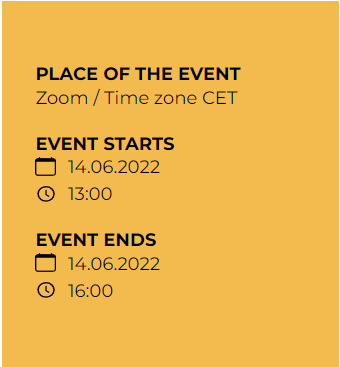
Current

28.06.2022 15:57
After having arranged two workshops and participating the ICCAS conference in Lyon, we organized an open webinar on the 14th of June. The webinar was for researchers, teachers and health and social care professionals working in elderly care. Originally our intention was to organize an open seminar but due to the covid restrictions and a change of project period a webinar proved to be a workable solution. Invitations were delivered through the members´ networks and the ICCAS conference. Invitations included an option to vote for topics and fields of interest and the program was then build on the interests that were most wanted ones.
The first part of the webinar consisted of Danish Breakfast Club studies (2018-2022) presented by Lise Justesen (University College Copenhagen) followed by a Swedish Creating caring places study presented by Anna Sandgren (Linnaeus University) . Both of these studies took place in a nursing home context.
The Breakfast Club study, Hospitable meal practices as rehabilitation strategies in nursing homes, consists of three phases. The first part (2018) included an ethnographic study and baseline measurements after which during the second part (2019) focus was on residents´ food related functionality, quality of life and principals for their involvement in food related activities. Premises were that meals can serve as rehabilitation sites as they involve residents in food related activities and support the overall well-being and functional capacities of the elderly residents. During this phase a Hospitable meals model was used. According to this model meals are seen as provisions, routine and conditional hospitality as wells as unconditional hospitality, disruptive micro elements and platforms for co-creation. During the third part (2021) Dynamic hospitality was implemented as everyday meal practices. Actions research strategy includes development of future-workshops, materials and designs, equipment, cookbook and guides, future-workshops with HCP Experiments, meetings with residents, music at meals, playlist, sensory evaluation of meals and e-data collection. Research data was collected by interviews, observations, observed functional capacity and debriefing notes. After a wide variety of analyses and interesting findings a question “What is a home if you can´t act as a host” was risen and needs of developing future-workshops, materials and designs, equipment, cookbooks and guides came up. Testing of host-guest relations, kitchen involvement, relative involvement and developing and testing a mobile kitchen with nursing home residents were launched.
The Swedish study Creating caring spaces -development of mealtime interventions in nursing homes points out that 50% of the residents in nursing homes are malnourished, 90% of people with dementia develop at some time behavioral and psychological symptoms and the mealtime is a key social focal point and occupies a large proportion of activity during a day. In this study Five Aspect Meal Model (FAMM) was used. This model is originally a tool for developing meal services in restaurants. The Room, the Meeting and Product together form the Atmosphere. The management control system serves as a tool for control and logistics. The aim was to develop interventions that target and expand caring qualities of mealtime environments for people living with dementia and besides this to optimize mealtime environments in nursing homes in a way that support health, QoL and well-being of the residents. Research questions were 1) what the experiences of various mealtime environments from the perspectives of residents are, family members and staff, 2) which intervention has been linked to which outcomes in the research literature focusing on mealtimes in nursing homes, 3) what impact has characteristics of mealtime environments on caring aspects and 4) in what ways are the aspects in FAMM relevant concerning needs and demands of an involuntary guest. This study took place in one nursing home in the southeast part of Sweden. The nursing home was opened in the spring of 2018 and it has nine integrated units with three heads and 130 staff members. Two thirds of 85 residents live with a dementia diagnosis. Method consists of an integrative literature review, both qualitative and quantitative methods based on a Participatory Action Research (PAR) tradition in collaboration with residents, family members and staff. First the clinical practice was described, the feedback from the first step was followed by a dialogue where goals/outcomes were set, and interventions were decided on the evaluation of interventions against the goals/outcomes and in relation to feasibility. Descriptive empirical studies from the perspectives of residents, family members and staff, adaptation and validation of a mealtime observation protocol and development of a manual for clinical use guiding the improvements of mealtime environments in nursing homes as well as development of Five Aspect Meal Model are going on.
The second session of the webinar started with a presentation named Development of healthy food -Healthy and sustainable foods for elderly by Cornelia Witthöft & Mohammed Hefni (Linnaeus University) from Sweden. Food science is widely presented at the university of Linnaeus where research activities cover food chemistry and food composition, functional plant foods for a healthy diet, nutrition policies and sustainability, nutrition and bioavailability and food processing for functional ingredients. Special attention has been focused on the role of legumes in promoting health. Development of ingredients for new legume food, especially those that are folate-enhanced, has been emphasized. Also studies of bread with low GI, clinical intervention studies to enhance gut health and assessment of metabolic effects and identification of dietary biomarkers of legume intake using metabolomics and microbiomics have been carried out. One central aim has been to find sustainable ways to reduce the consumption of meat. To meet current and future societal changes we need interdisciplinary knowledge environments to gather prominent research, education, and collaboration.
The last presentation was by Kai-Victor Myrnes-Hansen (University of Stavanger, Norway) whose topic was Elderly and meal knowledge. He covered the impact of color of porcelain, how presentation can increase appetite, and knowledge of food can promote healthy life. Fridge stories vividly illustrated, how just one look into the fridge can reveal the state of the eating and meals of an elderly person living at home. The presentation covered the relations of good food, good health and good economy and rose the question what´s next. We need to figure out how we can join forces, increase cross-sectional research, develop education and the care to the best for the elderly and find out what it is, what they want.
Presentations rose questions and vivid conversation. Topics varied from theory and models to settings and methods, even to new ways of pizza baking. It seems that the network needs people outside universities, people who can put the scientific findings into action in the so-called real life. We are missing and inviting practitioners, such as nurses and social workers as well as service entrepreneurs and producers to join the network. Based on what was heard and learned it is interesting to head towards planning future actions in the Fall.
The project is funded by Nordic Joint Committee for Agricultural and Food Research.
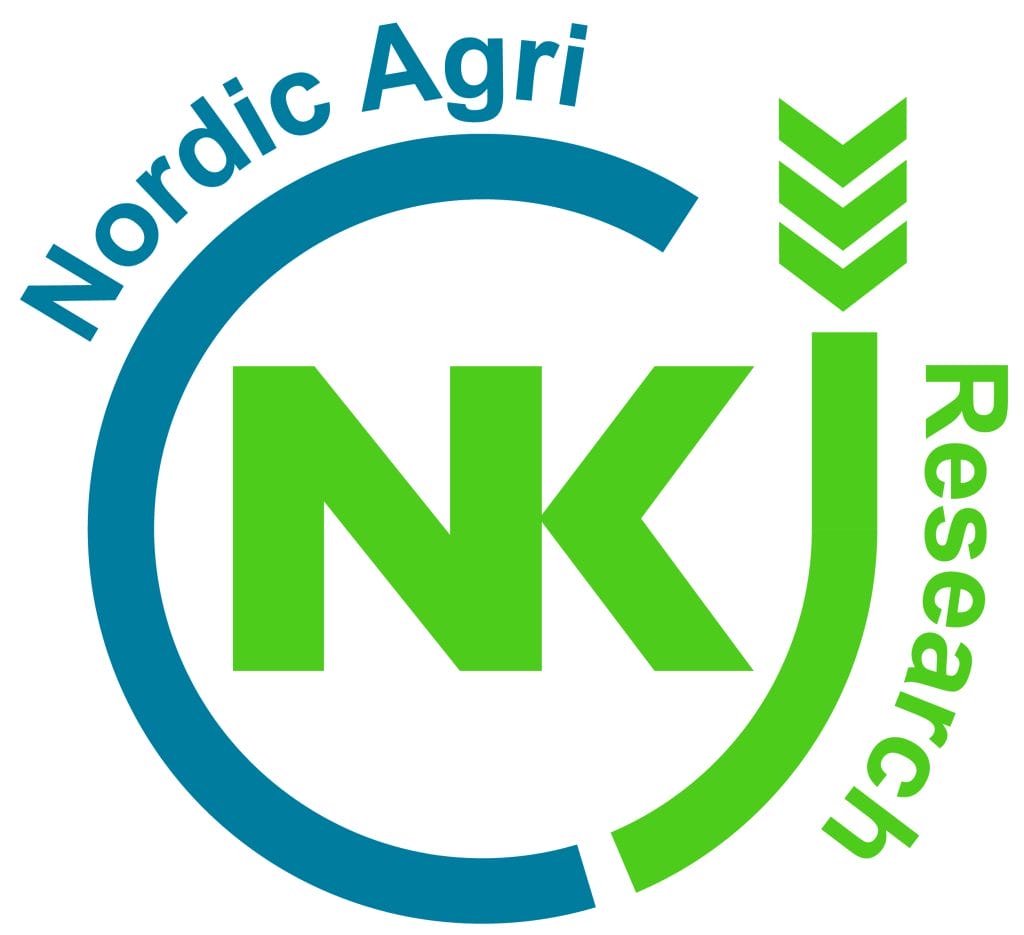
Text: Sari Ranta, Xamk
Picture: Manu Eloaho, Xamk
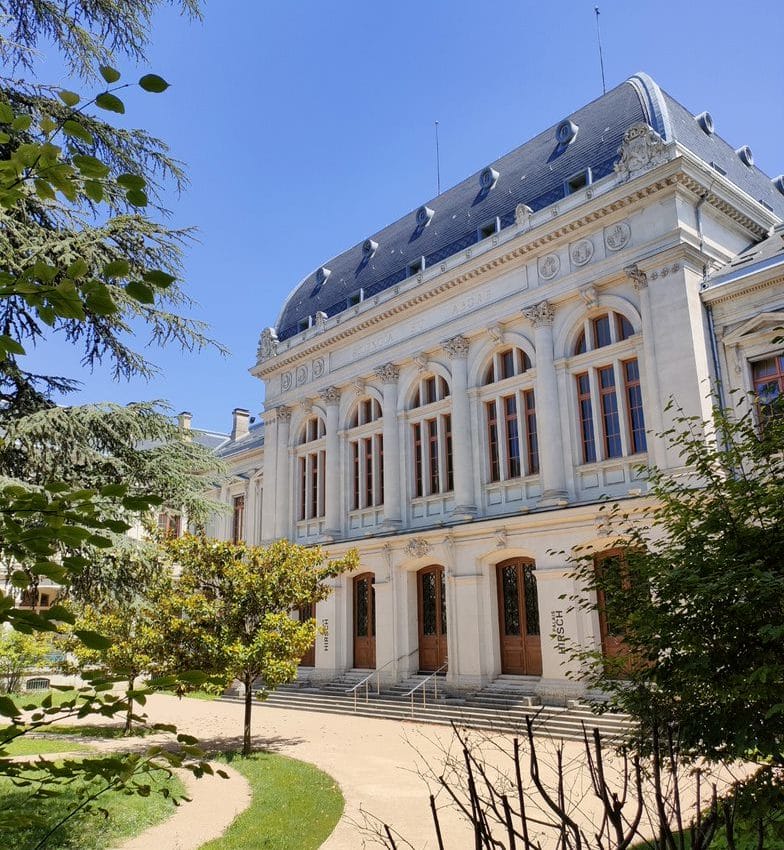
28.06.2022 15:44
Bridge builders – Building sustainable nutritional bridges between research and health and wellbeing services for elderly
Bridge Builders consists of expertise in food and nutrition research (healthy food, alternative proteins, mealtime interventions, aging) as well as in service applications and good practices (dietary habits and environments, training of social and health professionals). Participants represent Denmark (University College Copenhagen), Finland (South-Eastern University of Applied Sciences), Norway (University of Stavanger) and Sweden (Linnaeus University).
The 12th International Conference on Culinary Arts and Sciences (ICCAS 2022) was held in Lyon, France, on June 1st-3rd. Lyon, which is the capital of French gastronomy, besides serving great food also provided a wide variety of interesting topics and findings to support health and well-being and enhance the development of the food science, food industry and food services. ICCAS has initially been found as a forum for culinary artists, food scientists and food industry to have an international conference where all sides can get to know each other’s’ work, share ideas and built networks. This concept has shown to be beneficial and successful.
The conference was hosted by the Institute Paul Bocuse, which is a leading higher education school in culinary arts, food service and hospitality. The program included a visit to the Institute’s culinary school, research center and living labs where a culinary demo and tasting as well as a reception were held.
The theme of this conference was sustainable meal systems worldwide: Challenges for culinary arts and sciences. Topics included sustainability, meal systems, food culture, foodservice and hospitality, food systems and politics, the resilience of the food and food service sector in a crisis context, food marketing, food habits and consumer behavior, food science and safety and nutrition and wellbeing. All this was packed in seven sessions of oral presentations and 28 posters filled with interesting settings, methods and findings. Since the “menu” was so versatile and full of choices, everyone was able to find special scientific treats to please one´s needs.
Our network’s aim was to present the activities of the Bridge Builders network in order to discuss how a multidisciplinary approach can contribute with new knowledge to promote sustainable healthy aging in relation to food, nutrition, health and well-being services. We also wanted to invite researchers and practitioners who participate in the congress to join the network and also our webinar on the 14th of June. Both presentation and the invitation rose interest and opened opportunities to get to know new colleagues and to strengthen our co-work in ongoing and future research areas related to healthy eating and aging from a holistic perspective.
The project is funded by Nordic Joint Committee for Agricultural and Food Research.

Text: Sari Ranta, Xamk
Picture: ICCAS team
Other projects from the same field
- Multiform food related services to promote older people’s sense of community and functional capacity – Ikäruoka 2.0
Bridge builders – Building sustainable nutritional bridges between research and health and wellbeing services for elderly
Info
Budget
Keywords




Contact info
Research manager
Teija Rautiainen
teija.rautainen@xamkfi
tel. +358400872759
Principal lecturer
Sari Rantasari
.ranta@xamk.fi
tel +358028844447




